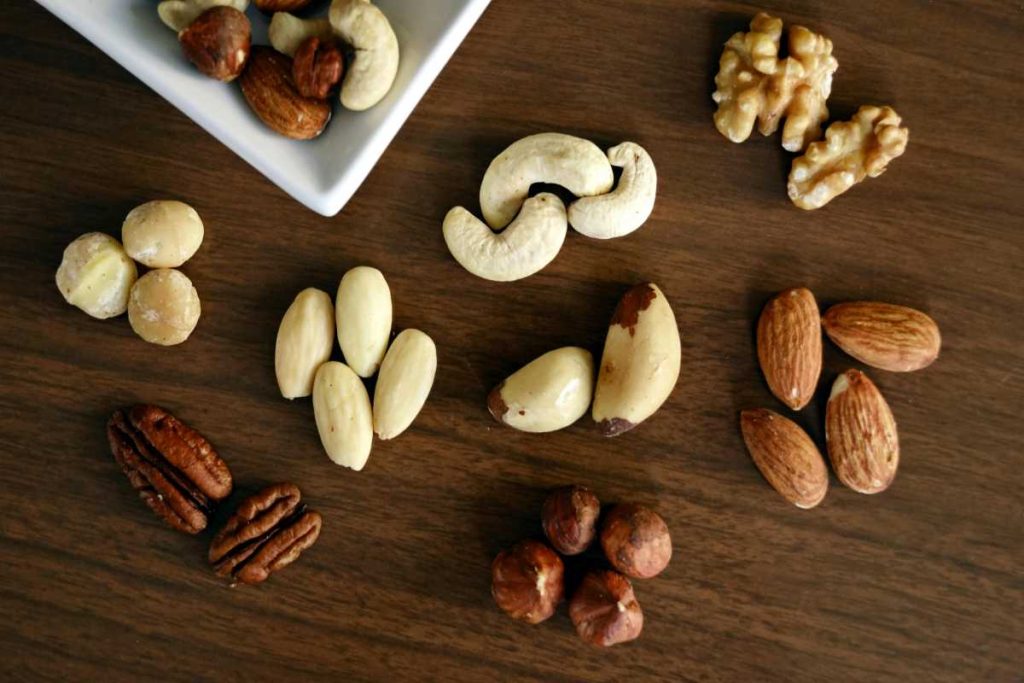In today’s fast-paced world, maintaining good health can often seem like a daunting task. With busy schedules, constant stress, and unhealthy temptations all around, it’s easy to let our health take a backseat. However, staying healthy doesn’t have to be overwhelming or complicated. By making small, intentional changes, you can significantly improve your well-being.
In this blog, I’ll outline 10 essential tips that will help you stay healthy right now. These are practical, actionable steps you can incorporate into your daily routine, ensuring you feel better, both mentally and physically.

1. Prioritize Sleep
Sleep is one of the most important yet often overlooked aspects of staying healthy. A good night’s sleep not only helps you feel refreshed but also plays a critical role in your overall health, affecting your immune system, brain function, and emotional well-being.
Tips for Better Sleep:
- Establish a Sleep Routine: Go to bed and wake up at the same time every day, even on weekends, to regulate your body’s internal clock.
- Create a Relaxing Environment: Keep your bedroom cool, quiet, and dark. Consider using a white noise machine or blackout curtains to minimize distractions.
- Limit Screen Time Before Bed: The blue light emitted by phones, tablets, and computers can disrupt your sleep cycle. Try to avoid screens at least an hour before bedtime.
2. Eat a Balanced Diet

Your body needs the right fuel to function at its best, which means eating a well-balanced diet rich in essential nutrients. Great health starts with what you put into your body, and the right foods can boost your energy, mood, and immune system.
How to Eat Healthier:
- Incorporate Whole Foods: Prioritize fruits, vegetables, lean proteins, and whole grains in your meals. These foods are rich in nutrients and low in unhealthy fats and sugars.
- Stay Hydrated: Drink plenty of water throughout the day. Staying hydrated helps your body flush out toxins, keeps your skin glowing, and boosts energy levels.
- Limit Processed Foods: Minimize consumption of packaged, processed foods high in sodium, sugar, and unhealthy fats. Instead, opt for fresh, whole ingredients.
3. Exercise Regularly
Physical activity is a cornerstone of good health. Regular exercise strengthens your heart, improves circulation, and helps you maintain a healthy weight. Moreover, staying active can boost your mood by releasing endorphins, your body’s natural “feel-good” chemicals.
Tips for Staying Active:
- Find an Activity You Enjoy: Whether it’s walking, running, yoga, dancing, or strength training, choose an exercise routine you love. This makes it easier to stick with it in the long term.
- Start Small: If you’re new to exercise, don’t try to do too much too soon. Start with 10-15 minutes a day and gradually increase your time and intensity.
- Mix It Up: Avoid getting stuck in a fitness rut by incorporating a variety of activities. This keeps things fun and challenges different muscle groups.
4. Manage Stress Effectively
Chronic stress can take a toll on both your mental and physical health. It weakens your immune system, disrupts sleep, and can lead to long-term health problems like high blood pressure and heart disease. Learning how to manage stress is essential for maintaining good health.
Stress-Relief Strategies:
- Practice Mindfulness: Mindfulness techniques such as meditation, deep breathing, or yoga can help reduce stress and increase mental clarity.
- Take Breaks: Step away from work or stressful situations to recharge. Even a short walk or a few minutes of deep breathing can make a big difference.
- Talk to Someone: Sometimes, sharing your concerns with a trusted friend or therapist can help you gain perspective and feel supported.

5. Stay Hydrated
Proper hydration is key to keeping your body functioning well. Water plays a critical role in everything from regulating body temperature to supporting digestion and circulation. Drinking enough water is one of the simplest yet most impactful things you can do to stay healthy.
How to Stay Hydrated:
- Drink Water Throughout the Day: Aim for at least 8 glasses (64 ounces) of water a day, and adjust depending on your activity level and climate.
- Monitor Your Thirst: Pay attention to signs of dehydration such as dry mouth, headaches, or fatigue. Keep a water bottle with you to sip throughout the day.
- Eat Hydrating Foods: Fruits and vegetables like cucumbers, watermelon, and oranges have high water content and can contribute to your daily hydration needs.
6. Practice Good Hygiene
Good hygiene is essential for preventing infections and illnesses. Regularly washing your hands, brushing your teeth, and keeping your environment clean can drastically reduce your risk of getting sick.
Hygiene Habits to Follow:
- Wash Your Hands Regularly: Use soap and water to wash your hands, especially before eating, after using the restroom, and after being in public places.
- Brush and Floss Daily: Oral health is closely linked to overall health. Brushing twice a day and flossing once a day can prevent gum disease and other oral health issues.
- Disinfect High-Touch Surfaces: Regularly clean surfaces like doorknobs, light switches, and electronics to reduce the spread of germs.
7. Get Regular Check-Ups
Preventive healthcare is key to maintaining long-term health. Regular check-ups can help identify potential health issues before they become serious and ensure you’re staying on top of your overall well-being.
Medical Appointments to Prioritize:
- Annual Physicals: Visit your doctor for a yearly check-up to monitor your health and address any concerns.
- Dental Check-Ups: Don’t forget to see your dentist twice a year for cleanings and exams.
- Screenings and Vaccinations: Make sure you’re up to date on important screenings (like blood pressure or cholesterol checks) and vaccinations, which can prevent illness.

8. Limit Alcohol and Avoid Smoking
While the occasional drink may be enjoyable, overconsumption of alcohol can harm your health. Likewise, smoking is one of the most dangerous habits for your body, leading to a host of long-term diseases.
Healthier Choices:
- Moderate Alcohol Intake: Stick to moderate alcohol consumption, which means up to one drink per day for women and two for men.
- Avoid Smoking: If you smoke, seek help to quit. There are many resources, such as nicotine patches, counseling, or smoking cessation programs, that can support you on your journey.
- Find Healthy Alternatives: Instead of reaching for a cigarette or drink when stressed, try healthier coping mechanisms like exercise, meditation, or talking with a friend.
9. Cultivate Mental Wellness
Your mental health is just as important as your physical health. Great mental well-being allows you to handle stress better, form meaningful relationships, and enjoy life to the fullest.
Ways to Improve Mental Health:
- Practice Gratitude: Start a daily gratitude journal where you write down things you’re thankful for. This simple habit can boost your mood and overall outlook on life.
- Stay Connected: Build and maintain strong social connections with family, friends, and your community. Positive relationships provide emotional support and enhance your sense of belonging.
- Set Boundaries: Learn to say no to things that cause you undue stress or overburden your schedule. Setting boundaries helps you protect your mental health and energy.
10. Maintain a Positive Mindset
A positive outlook can go a long way in helping you stay healthy. Optimism and positivity are linked to better mental health, lower stress levels, and even improved immune function.
How to Cultivate Positivity:
- Practice Affirmations: Start your day by repeating positive affirmations, such as “I am capable,” “I am strong,” or “I am healthy.” This sets a positive tone for your day.
- Surround Yourself with Positivity: Spend time with people who uplift and encourage you. Distance yourself from negative influences that drain your energy.
- Focus on Solutions, Not Problems: When faced with challenges, shift your focus from the problem to finding a solution. This proactive approach can reduce stress and help you feel more in control.
Conclusion
Staying healthy doesn’t require a complete life overhaul—small, intentional changes can have a significant impact on your overall well-being. By prioritizing sleep, eating a balanced diet, managing stress, and incorporating regular physical activity, you’ll be well on your way to living a healthier life.
Remember that health is a journey, not a destination. These 10 essential tips offer a starting point, but the key is consistency. Take one step at a time, and soon these habits will become second nature, leading you to a happier, healthier, and more fulfilling life.

